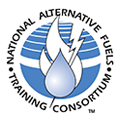Program planning is the most important part of making sure that your event is a success. Many small details can be overlooked if you do not carefully discuss your plans in advance.
Here are some tips for a successful event:
• Form an event planning committee and delegate tasks
• Choose an event date that does not conflict with holidays or other industry-related events
• Make a timeline for your event to make sure all deadlines are met
• Choose a convenient location and book it in advance
• Create a budget that meets your organization’s capabilities
• Create a marketing strategy to attract participants
• Choose activities that reflect the goals and interests of your targeted audience
• Consider event logistics (parking, technology, menu, materials) and reconfirm details
• Evaluate your event through participant surveys
• Keep a record of all acquired information for future events
Your marketing strategy should be based on who you want to attract to your event and what works well in your community.
Some possible steps to take for successful recruitment include:
• Identify your audience (Fleets, civic-minded, students, etc.)*
• Determine motivators and other factors about your selected audience
• Identify your event’s format (conference, fair, workshop, etc.)
• Determine the maximum number of attendees
• If there are multiple audience types, determine the number of attendees from each group
• For each particular audience, determine the methods by which you can reach them
• Determine the timeline, preparation, and materials needed to employ each recruitment method
**Please note: :It is important not to incorporate too many target audiences into one event as their individual needs may be very different.
Some methods suggested to reach audiences include:
• Direct mail
• Existing “friendly” organization’s communication systems (newsletter, e-mail, Web, Facebook, Twitter)
• Speaking to a group (students, local associations, etc.)
• Word of mouth
• Personal phone calls
• Phone bank calls
• Ads in targeted local papers/publications
• Local broadcasting (Guest on a radio show/PSA/paid announcement)
• Other advertisements – billboards, ads at movie theaters, ads in local event program booklets
The amount of money you are able to spend is a large determining factor in your event planning. It is important to know where your costs lie and how much profit, if any, you are going to make. Expenses should be slightly overestimated (as much as 10 percent) and revenues should be slightly underestimated to remain safe but flexible. Involve all members of your staff when preparing your event budget so you do not overlook any small details.
Use the event budgeting worksheet to stay organized with documenting and categorizing your expenses.
When it comes to planning an event, you can never be too organized. Depending on the type and size of your event, you may need to plan six to twelve months in advance to book a venue, place an order or form a planning committee. Creating some planning checklists will help save you time and energy and will make for a great event. Remember, we may not have all the specifics that your event requires on these sheets, so do some brainstorming prior to your event planning to ensure everything is covered.
Facilities Planning Checklist(.pdf)
Successfully marketing an event not only includes making use of promotional materials but also employing techniques that will attract participation, ensure participants are pleased, and increase the chances of future participation. This means promoting the event ahead of time and also following through with communications even after the event is over. You don’t have to spend a lot of money to do this either.
By getting creative with your marketing approach and utilizing the resources that you already have, you will be well on your way to event marketing success. See more tips on successfully marketing your event below or refer to the Interactive Media section to find out how you can use the Web to promote your events.
The evaluation phase of your event provides valuable information for future programs. From these evaluations you will be able to assess the effectiveness of the event while gauging the impact of all your efforts.
Below are some ideas for gathering evaluations at your event:
• If you have a conference-style event, consider having a special time set aside in the schedule for participants to fill out evaluations; have someone designated to answer questions and collect the completed evaluations.
•Have participants fill out evaluations as a “ticket” for a chance to win a great door prize at the end of the event.
• Use the evaluation as a “ticket” for entrance into a special meal or event.
• Have a special evaluation table where completed evaluations can be exchanged for an event give-away such as an event poster, pen, hat, etc.
Remember: Be sure to have plenty of writing instruments for participants to use in filling out the evaluations. You want to make this hassle free.








